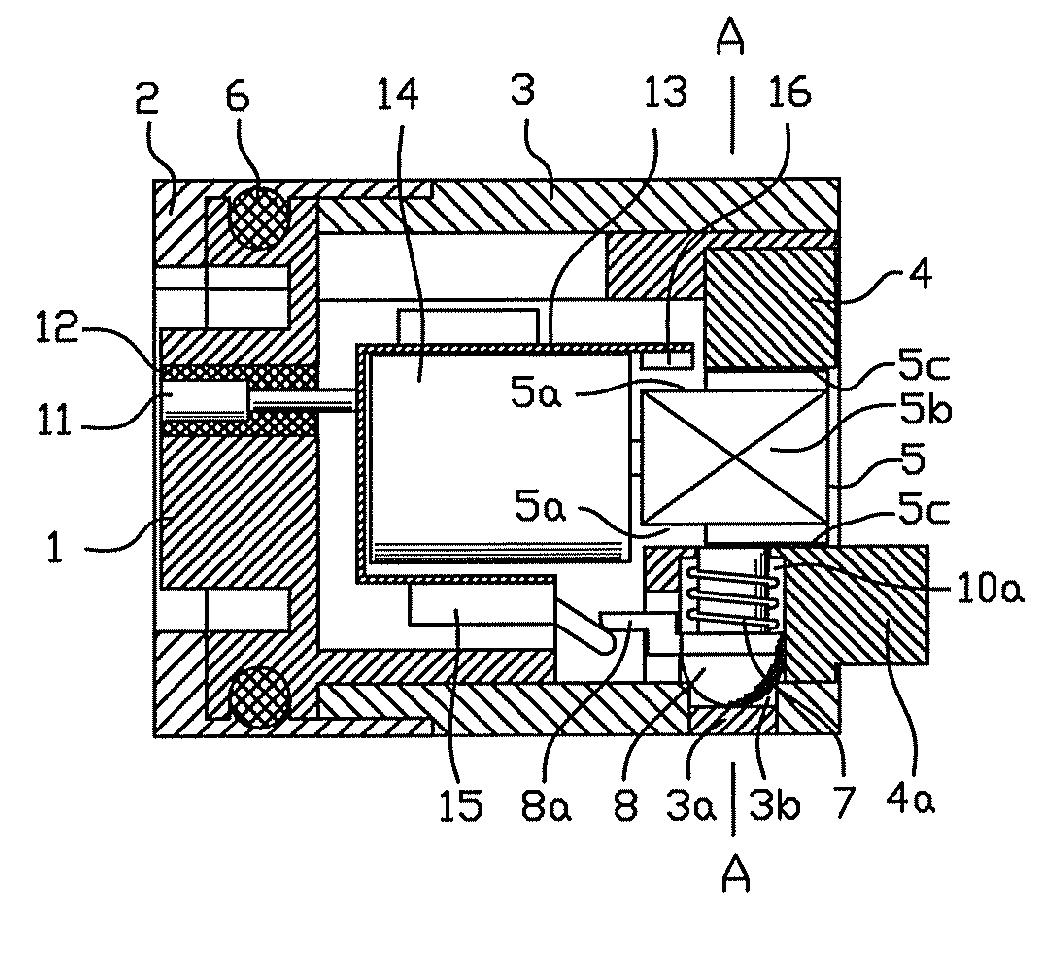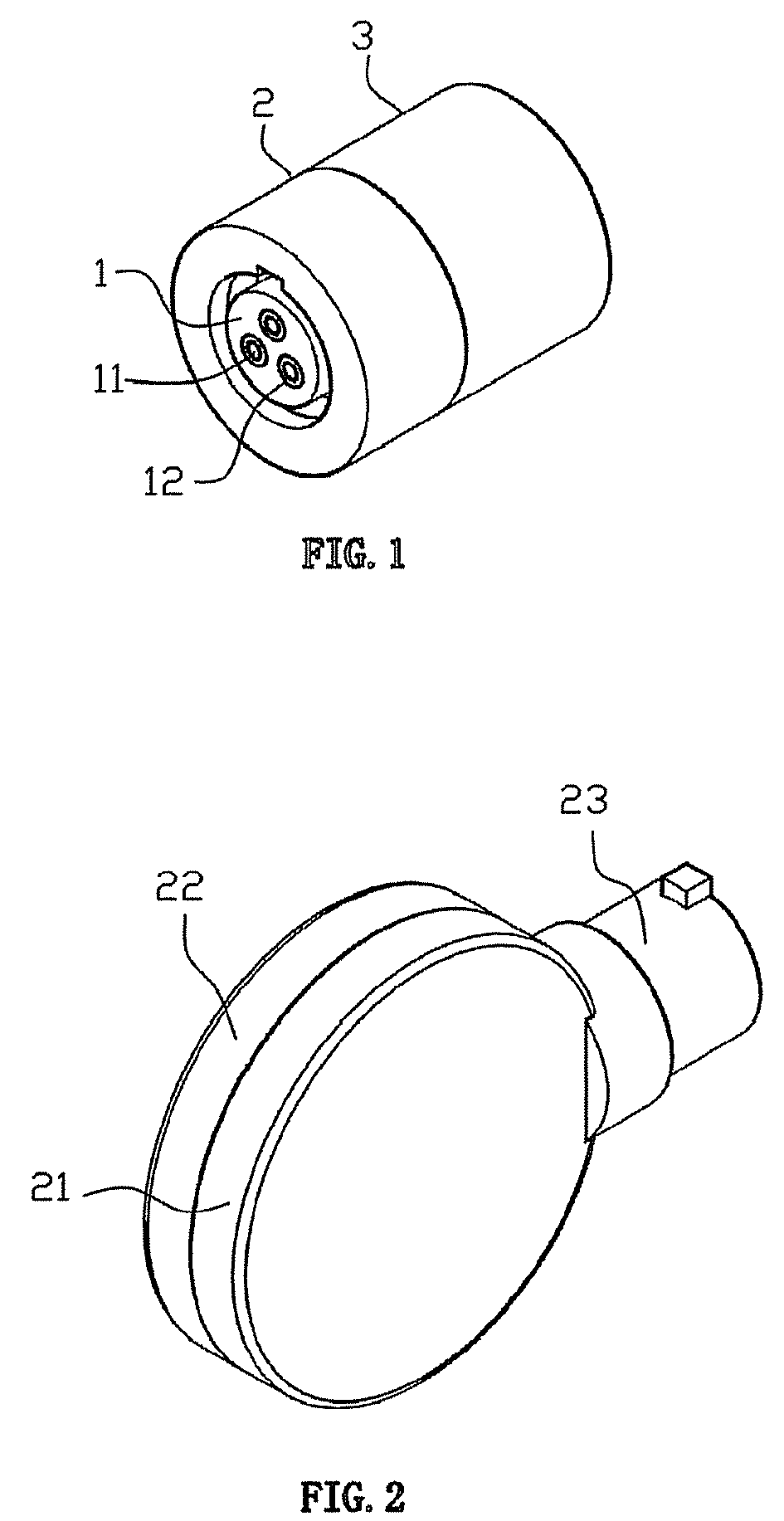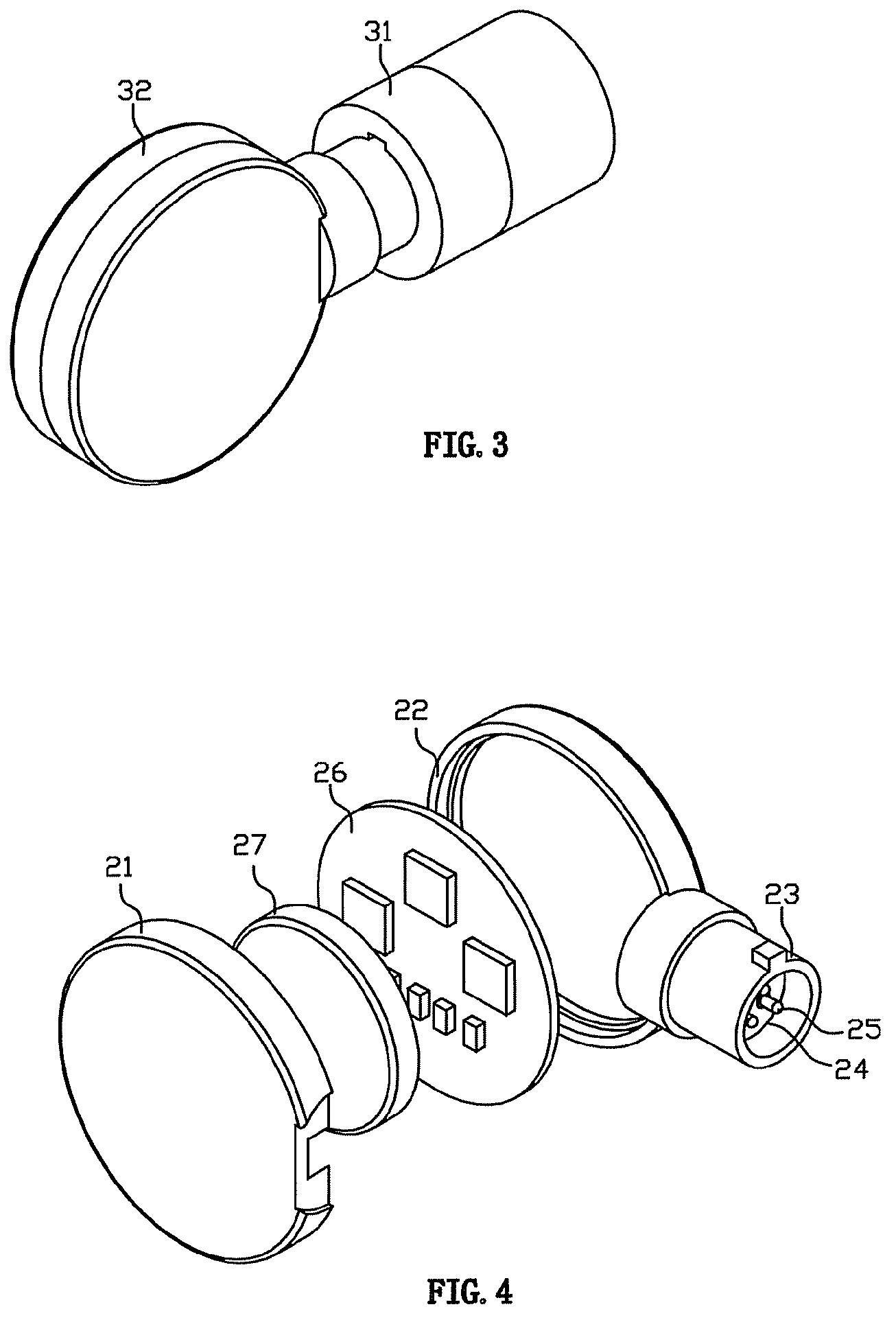Micropower passive electronic lock cylinder
a passive electronic lock and micro-power technology, applied in the field of electronic locks, can solve the problems of high power consumption, large number of batteries of active electronic locks, and electronic locks using commercial power for power supply, and achieve the effects of low power consumption, high safety, and high conversion efficiency
- Summary
- Abstract
- Description
- Claims
- Application Information
AI Technical Summary
Benefits of technology
Problems solved by technology
Method used
Image
Examples
Embodiment Construction
[0036]The invention will further be described with reference to the figures and specific embodiments.
[0037]FIG. 1 shows a perspective view of the lock cylinder in which a typical cylindrical electronic lock cylinder comprises a rotatable plug 1, a front cover 2 and a cylinder body 3, wherein the front cover 2 and the cylinder body 3 can be assembled by processes such as interference fit, cohering, soldering, and the like. Three contact electrodes 11 and an insulating bush 12 are located in the rotatable plug 1. When the lock cylinder is matched with different types of mechanical locks, the shape and structure of the front cover and the cylinder body can be correspondingly adapted. The front cover and the cylinder body can thus be adapted to fit various types of mechanical locks, and fitted in similar fashion to that of common traditional mechanical lock cylinders.
[0038]FIG. 2 shows the perspective view of the key in which the outward appearance of an electronic key is formed by comb...
PUM
 Login to View More
Login to View More Abstract
Description
Claims
Application Information
 Login to View More
Login to View More - R&D
- Intellectual Property
- Life Sciences
- Materials
- Tech Scout
- Unparalleled Data Quality
- Higher Quality Content
- 60% Fewer Hallucinations
Browse by: Latest US Patents, China's latest patents, Technical Efficacy Thesaurus, Application Domain, Technology Topic, Popular Technical Reports.
© 2025 PatSnap. All rights reserved.Legal|Privacy policy|Modern Slavery Act Transparency Statement|Sitemap|About US| Contact US: help@patsnap.com



